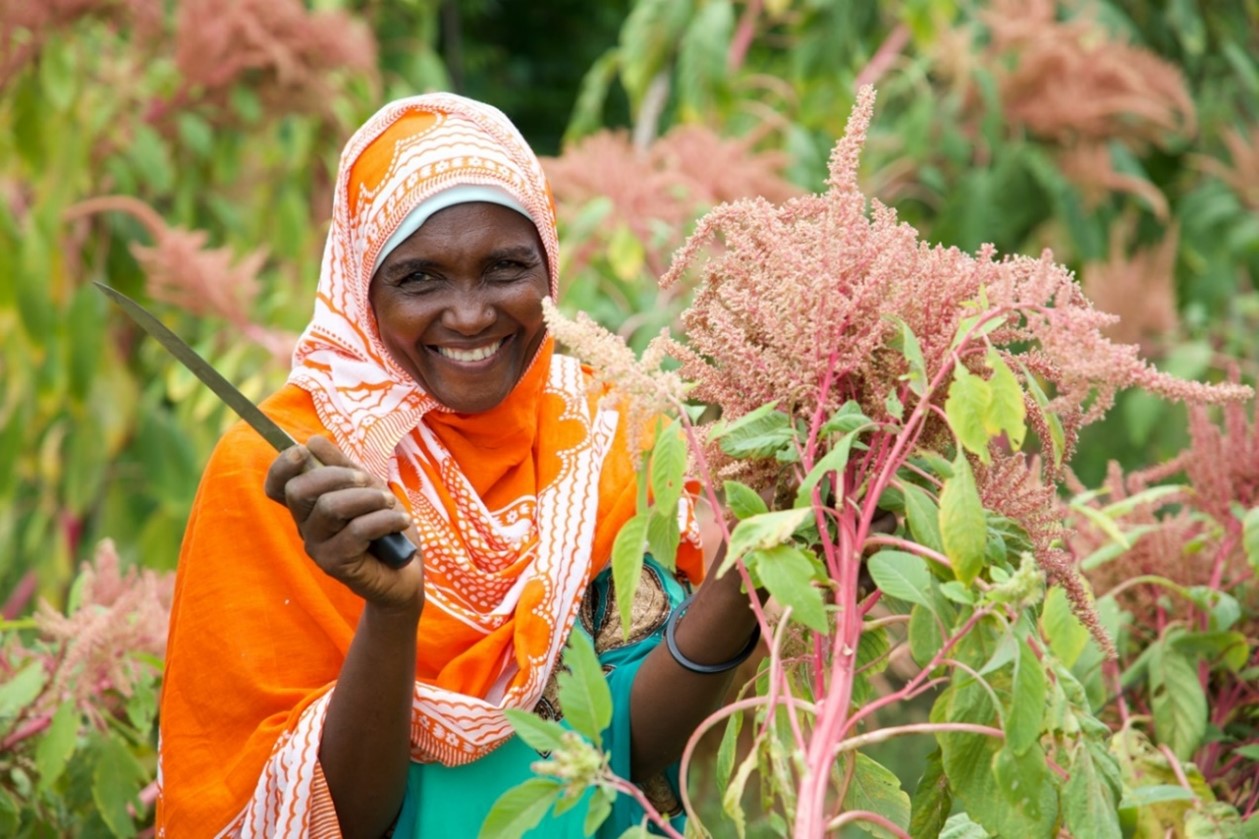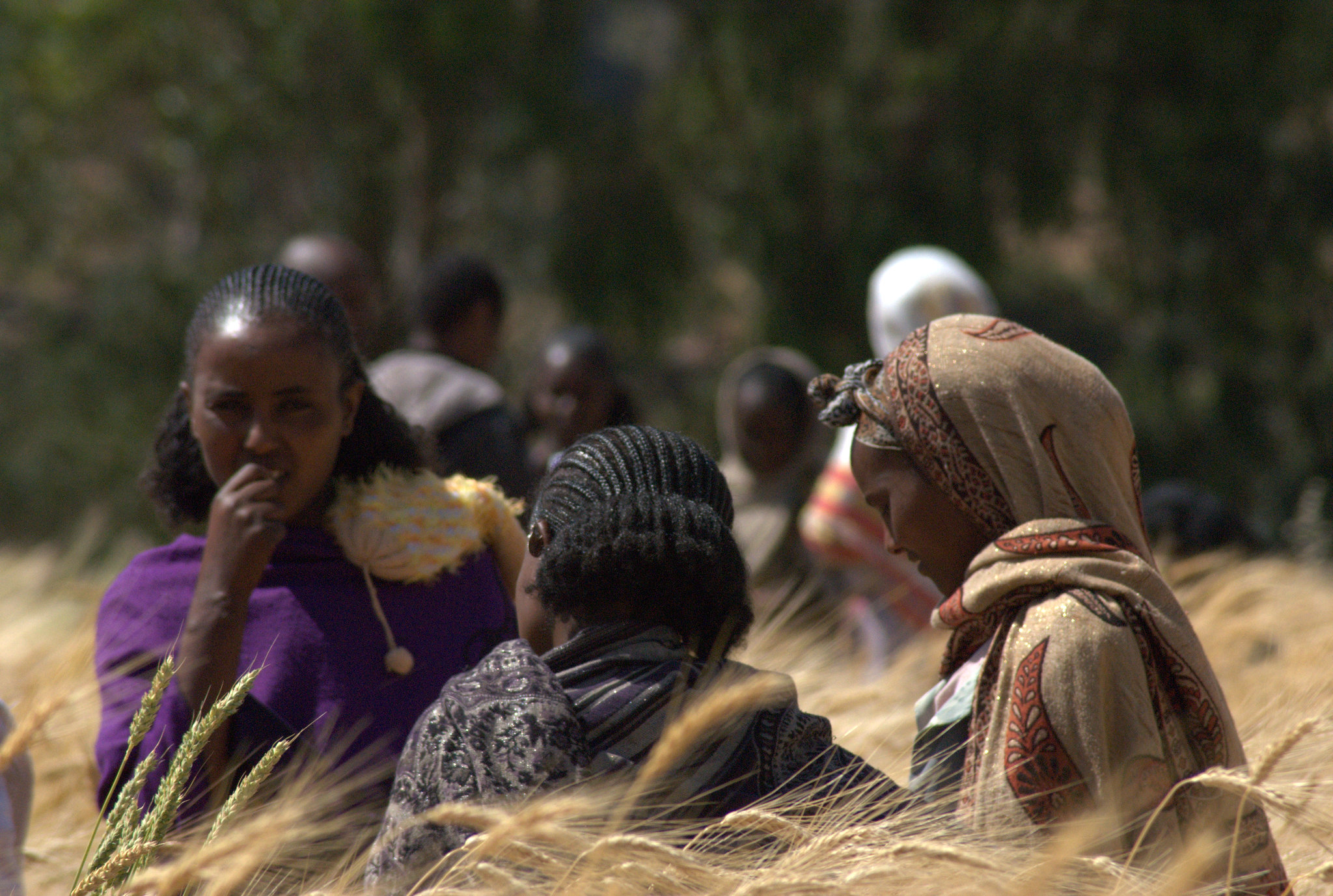
In the sleepy village of Mshewe in Tanzania’s Mbeya District, a group of women is quietly revolutionizing their community through a powerful blend of agricultural entrepreneurship and social transformation. Since its inception in 2010, the Zinduka Women group has grown from a collective of women survivors of gender-based violence to an inspiring force for change that is uplifting families and challenging societal norms.
Empowerment through economic independence is at the heart of their mission, and their name “Zinduka”— a Swahili word meaning “to wake up, come to one’s senses, or gain consciousness,”—aptly describes the group’s journey. Supported by the Southern Africa Accelerated Innovation Delivery Initiative (AID-I) project, these women have moved beyond the shadows of their past to redefine their future. Today, they stand as role models, not only in agriculture but as champions of women’s empowerment.
From Beans to Big Dreams
Since their inception in 2010, the women of Zinduka have faced the challenges of limited yields and outdated farming methods. Taking a leap of faith, they sought out partnerships that could provide them with the necessary tools and training. Collaborating with the Tanzania Agricultural Research Institute (TARI) and the Alliance for a Green Revolution in Africa (AGRA), the women embarked on an ambitious two-year journey of modern agricultural training, transforming their humble bean farm into a scalable, profitable venture. By adopting improved seed varieties like the Zinc and iron-rich Jesca beans, the group saw their yields soar from 120 kg to over 500 kg per hectare—a testament to the power of education and perseverance.
Witness Kayanga, the group’s chairperson, recalls the turning point for the women of Zinduka: ‘We realized that to break the cycle of poverty and oppression, we needed more than just hard work; we needed knowledge and resources. That’s when things started to change.’
Innovation Meets Empowerment
With support from USAID, through CIMMYT’s AID-I project, the Zinduka Women’s Group has made remarkable progress. Today, 11 of the 38 group members are Quality Declared Seed (QDS) producers, enabling them to contribute to local food security by producing high-quality seeds while also generating a sustainable income. The group has also received a production machine that has significantly improved their efficiency. When not in use by the group, the machine is rented out to others in the community, creating an additional revenue stream.
The group’s association with NMB Bank has given them access to credit facilities that have strengthened their financial position. Furthermore, the acquisition of a digital weighing scale has brought much-needed precision to their work. These developments have enabled them to expand their business, and the impact is visible not only in their increased earnings but also in their confidence. One group member proudly shared, ‘We used to face heavy losses as some traders exploited us by using tampered tins, causing us to sell more grain for less. Now, we are more than just farmers; we are businesswomen.’
This support has empowered the Zinduka Women’s Group to not only improve their agricultural output but also elevate their standing in the community as businesswomen.
Recognizing the untapped potential for value-added products, they began producing bean flour, cakes, and pastries, which quickly gained popularity in their village and beyond. Bean flour has emerged as a healthier, more nutritious alternative, leading to an increase in demand within Mshewe. As part of their forward-thinking approach, the Zinduka Women’s Group is now exploring the introduction of premium packaging for their high-zinc and iron-rich Jesca beans. This differentiation will enable them to command higher prices in the market, further increasing their profitability and sustainability.
The group still needs more support in terms of access to capital and mechanization, as their production scale increases and so does their reliance on equipment and market linkages. Efficiently matching seed supply with market demand remains critical to avoid the risk of selling valuable seed stocks as regular grain. Nonetheless, their progress is a testament to how access to training, tools, and financial services can transform the lives of smallholder farmers and strengthen local food systems.
Beyond Agriculture: A Beacon for Women’s Rights
While the Zinduka Women Group’s agricultural success is impressive, it is their role as advocates for gender equality that truly sets them apart. Most members have overcome significant personal trauma, using their economic success as a shield against future abuse. The group’s work is now seen as a model for integrating gender empowerment into rural development.
Not only are they transforming their own lives, but they are actively mentoring other women and youth in the region, amplifying their impact. Their success has attracted attention from various organizations, keen to replicate their model of combining agricultural innovation with social change.
A Future Built on Partnership and Hope
USAID’s support has unlocked a future of potential for the women’s group. By equipping them with the tools to succeed in agriculture and beyond, the foundation has been laid for sustainable growth, not only for the Zinduka Women’s Group but for the entire community.


 Capacity development
Capacity development 
